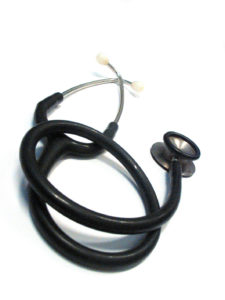Last Updated on February 24, 2026
With a diagnosis of diabetes, or any chronic illness, you may initially feel overwhelmed, helpless, and afraid. One second you  were “you”, and now, you’re “you with diabetes”. What does this mean? How will this affect your life?
were “you”, and now, you’re “you with diabetes”. What does this mean? How will this affect your life?
You may begin to analyze the choices you once made in your youth; you scold yourself for poor eating habits, not getting enough rest, working too much and never establishing effective stress management skills. In the moment you receive your diagnosis, your mind races, but regardless of what led to this moment, you’re here, and we’re here to help.
Here are five tips for processing and dealing with a difficult diagnosis like diabetes.
1. Take a deep breath-collect yourself and allow yourself to accept your diagnosis.
Any new diagnosis can feel overwhelming, and with the commonly understood risks associated with a life-long chronic disease like diabetes, this diagnosis in particular can be even more grueling. It is important to take the time to calm yourself and process the news you’ve just received. Take a deep breath. Acknowledge that no matter your circumstances before your doctor uttered, “you have diabetes”, you are now entering a new phase of your life – and it is going to be okay.
2. Assemble an iron-clad health care team.
Individuals with diabetes need to ensure that they have a dedicated and knowledgeable healthcare team in place to assist them in monitoring the various body systems that are affected with a disease such as diabetes. While your family medicine practitioner can assess your basic health, it is important for diabetics to develop a relationship with a CDE, and endocrinologist, and other specialists as necessary, to ensure that your condition is under control.
3. Ask questions – and make a list.
Educating yourself is one of the most important, proactive efforts you can make in managing your newly diagnosed diabetes. The easiest, most effective way to learn more about your condition and how you can be active in your health care, is by asking questions. Make a list. Every time you find yourself wondering about something related to your diabetes, write it down. As long as the concerns aren’t time sensitive, bring the compiled list of questions to your next regularly scheduled visit so that you can address them with your doctor or specialist.
4. It’s hard, very hard, but you can manage your disease successfully.
Depending on your case, the management of diabetes can be difficult to regulate – but you can do it. Don’t allow the difficult phases of treatment wear you down. With the right treatment plan in place, a great healthcare team, and a little trial and error, you’ll develop a daily treatment routine that will have your diabetes management under control in no time.
5. Make yourself aware of your options.
Diabetes is managed by the implementation of a variety of treatment options. Depending on the presentation of your diabetes and how you respond to treatment, you may successfully treat your condition through the use of diet and exercise, home blood glucose monitoring, multiple daily insulin injections, the use of an insulin pump or continuous glucose monitor. There are plenty of medical devices designed to assist diabetics in managing their conditions in a more convenient manner.
